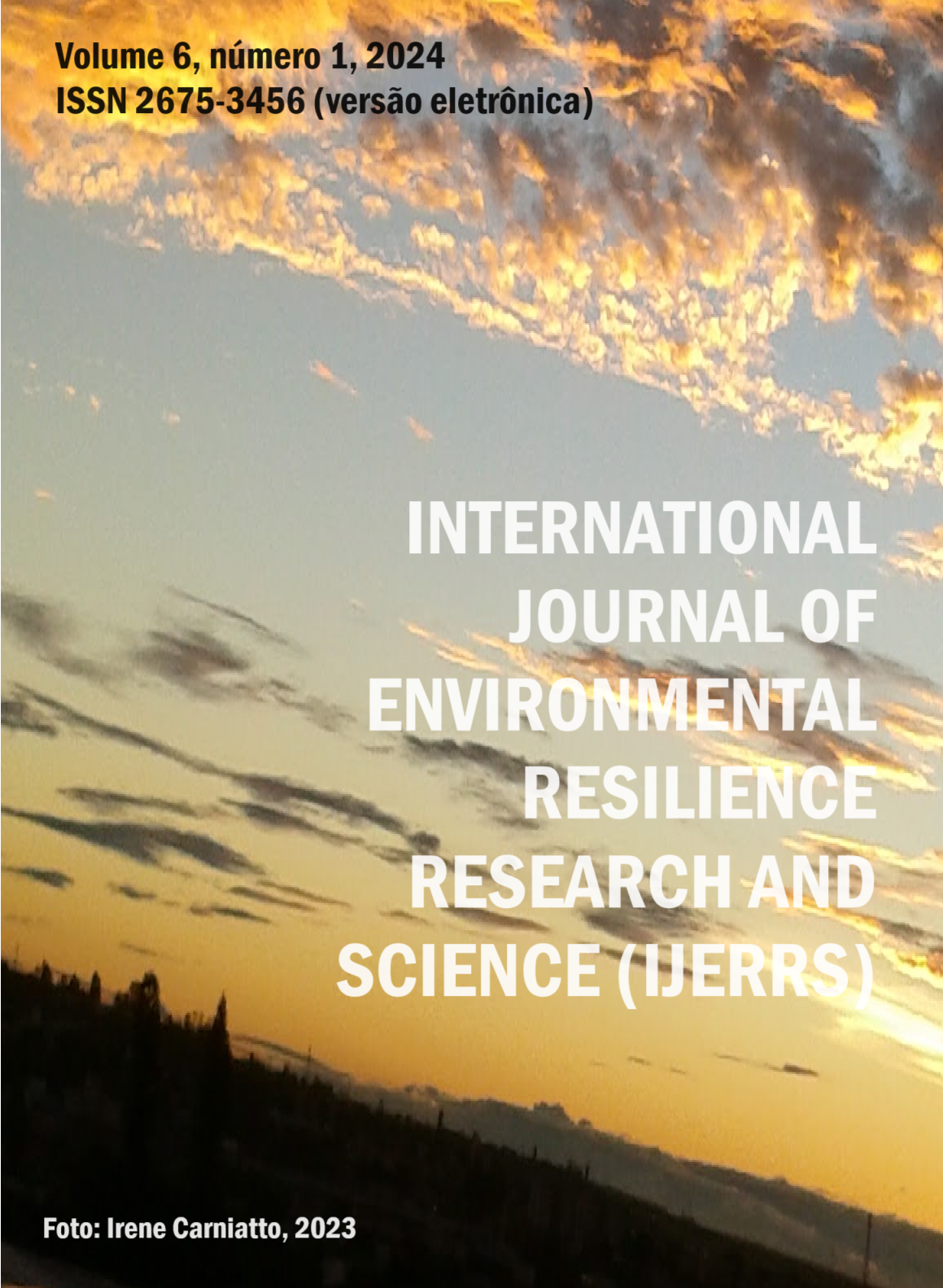Diagnóstico Preliminar da Segurança Alimentar em Relação aos Impactos Climáticos em duas Comunidades do Vale do Jari
DOI:
https://doi.org/10.48075/ijerrs.v6i3.32351Resumo
O objetivo deste trabalho é compreender como duas comunidades ribeirinhas do Vale do Jari se adaptaram às mudanças climáticas ocorridas, e avaliar os impactos dessas adaptações na segurança alimentar dessas populações. Primeiramente, foram realizadas entrevistas em ambas as comunidades, em que foram levantados dados de caráter quali-quantitativo. Posteriormente, esses dados foram analisados a partir da estatística descritiva, correlacionando a realidade local com outras comunidades da Amazônia. Resultou em 33 pessoas entrevistadas, na qual 81,8% moravam na comunidade há mais de dez anos, 93,9% realizam a prática do extrativismo e 67,7% relataram que os produtos advindos do extrativismo são utilizados tanto para subsistência como para comércio. Dos que constataram serem extrativistas, 57,58% estão tendo maior dificuldade em obter produtos extrativistas no verão amazônico de 2023. Em relação à horticultura, 21,2% alegaram produzir. Além de 52,2% desses produtores comprovarem que houve alteração na produção nos últimos anos. Além disso, 78,8% relataram que dependem de comércios distantes das comunidades para a compra de alimentos. Portanto, uma das maiores consequências das alterações climáticas é a escassez de recursos, que fazem com que tenham que recorrer a comércios geograficamente distantes de suas comunidades.
Downloads
Publicado
Como Citar
Edição
Seção
Licença
Copyright (c) 2024 International Journal of Environmental Resilience Research and Science

Este trabalho está licenciado sob uma licença Creative Commons Attribution-NonCommercial-ShareAlike 4.0 International License.
Aviso de Direito Autoral Creative Commons
Política para Periódicos de Acesso Livre
Autores que publicam nesta revista concordam com os seguintes termos:
1. Autores mantém os direitos autorais e concedem à revista o direito de primeira publicação, com o trabalho simultaneamente licenciado sob a Licença Creative Commons Attribution que permite o compartilhamento do trabalho com reconhecimento da autoria e publicação inicial nesta revista.2. Autores têm autorização para assumir contratos adicionais separadamente, para distribuição não-exclusiva da versão do trabalho publicada nesta revista (ex.: publicar em repositório institucional ou como capítulo de livro), com reconhecimento de autoria e publicação inicial nesta revista.
3. Autores têm permissão e são estimulados a publicar e distribuir seu trabalho online (ex.: em repositórios institucionais ou na sua página pessoal) a qualquer ponto antes ou durante o processo editorial, já que isso pode gerar alterações produtivas, bem como aumentar o impacto e a citação do trabalho publicado (Veja O Efeito do Acesso Livre).
Licença Creative Commons
Esta obra está licenciada com uma Licença Creative Commons Atribuição-NãoComercial-CompartilhaIgual 4.0 Internacional, o que permite compartilhar, copiar, distribuir, exibir, reproduzir, a totalidade ou partes desde que não tenha objetivo comercial e sejam citados os autores e a fonte.









